My Services
- Colon Cancer Screening
- Endoscopy
- Chromoendoscopy
- Colorectal Functional and Neurogastroenterology
- Disorders of Brain-Gut Interaction (DGBI)
- Feeding and Nutrition
- Functional Gastrointestinal Disorders (FGID)
- Gut Infections
- Imaging of Liver and Gastrointestinal Tract
- Interventional Radiology
- Liver Diseases
- Laboratory
- Newer Therapeutics
- Nuclear Medicine
- Obesity
- Oncology
- Pain Management
- Pregnancy
- Surveillance for Early Cancer Detection
- Surgery
Colon Cancer Screening
A high quality Colonoscopy performed by a qualified Endoscopist is the Gold Standard for detection of Colorectal Cancer (CRC). However, when a Colonoscopy is not desired or acceptable to the patient whether you’re afraid of the risks, religious sensitivities or perhaps old age, we now have other strategies to screen for cancer of the Colon. Read more on American College of Gastroenterology website.
FIT / FoBT
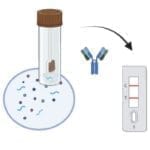
Faecal Occult Blood Testing (FOBT) is a simple test you can perform at home to check for colon cancer. Learn how to use the kit that can be purchased from pharmacies like Caring.
Colonoscopy
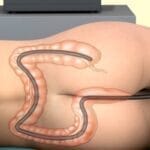
Colonoscopy is a test using an endoscope to perform detailed examination for cancer, polyps and hemorrhoids which we can treat. Read more at American College of Gastroenterology.
Flexible Sigmoidoscopy

Flexible Sigmoidoscopy involves inserting a short endoscope into the Anus, Rectum and Sigmoid Colon. It does not require bowel preparation and sedation. Read more from Cleveland Clinic.
Stool DNA Test
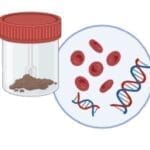
Stool DNA Test detects DNA markers from pre-cancerous and cancerous cells and presence of blood in stool. A positive test would require a follow-up colonoscopy. Read more from Colotect.
Colon Capsule
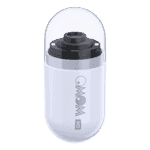
Capsule Endoscopy involves Bowel Preparation and swallowing a capsule. A small recorder worn around the neck captures the video which is now processed with Ai. Read about it here.
CT Virtual Colonoscopy
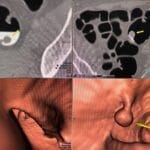
CT Virtual Colonoscopy involves Bowel Preparation and inflation of Air and Contrast into your bowels. A positive test might require contract into your veins or colonoscopy. Read more Mayo Clinic.
Endoscopy
Endoscopy uses a flexible tube with a camera and light source in order to diagnose and treat multiple health conditions such bitter taste in mouth, acid reflux, burning chest, belching, stomach pains and early gastric cancers.
Gastroscopy
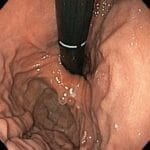
Gastroscopy also known as Oesophagastroduodenoscopy (OGDS) is used to diagnose and treat conditions in the esophagus, stomach and duodenum.
Colonoscopy
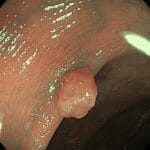
Colonoscopy is used to diagnose and treat conditions involving the colon such as removal of polyps, diagnosing colon cancer and banding of troublesome hemorrhoids.
Sigmoidoscopy

Flexible Sigmoidoscopy is a quick and simple test that can diagnose and treat conditions involving the anus, rectum and sigmoid colon without bowel preparation.
Capsule Endoscopy

Capsule Endoscopy was originally used to diagnose conditions of the Small Intestines such as Crohn’s Disease and Cancer. Today it can used to screen for Colorectal Cancer.
Balloon Enteroscopy
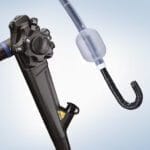
Single or Double Balloon Enterescopy can be used to treat conditions of the Small Intestines such as Strictures in Crohn’s Disease and Bleeding in the Intestines. Read more here.
Hemorrhoid Band

Endoscopic Hemorrhoid Banding can be used to treat troublesome hemorrhoids that cause bleeding and discomfort with great precision in a single session. Read about hemorrhoid banding.
EUS

Endoscopic Ultrasound (EUS) is used to diagnose and treat conditions in the Stomach, Gallbladder, Biliary System and Pancreas.
ERCP
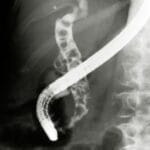
Endoscopic Retrograde Cholangio Pancreatography (ERCP) is used to treat conditions such as Gallstones, Cholangitis and cancers in the Pancreatobiliary system.
Spyglass
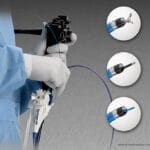
Also knowns as Cholangioscopy, it used to diagnose conditions such Biliary Tree Strictures and Cancers. It can be combined with Laser to treat large Gallstones.
EMR
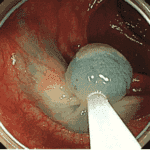
Endoscopic Mucosal Resection (EMR) is a technique used during endoscopy to remove polyps in the stomach and colon while minimizing the risks of injury to bowel.
ESD
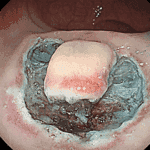
Endoscopic Submucosal Dissection (ESD) is a technique used to treat large polyps and early cancers in the stomach and colon to enable accurate assessment of the tissue.
POEM

Per Oral Endoscopic Myotomy (POEM) is a technique used to treat Achalasia without operation in patients with difficulty swallowing their food.
CH-EUS

Contrast Harmonic EUS is similar to EUS with addition of Ultrasound Contrast to enhance imaging of Gastrointestinal Stromal Tumors (GIST) and Neuroendocrine Tumors.
EUS RFA
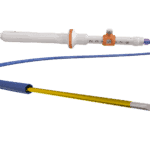
EUS Radiofrequency Ablation (RFA) is an emerging treatment for Neuroendocrine Tumors where it can provide significant reduction in symptoms.
APC
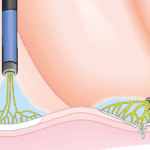
Argon Plasma Coagulation (APC) is an excellent tool to diagnose and treat abnormal blood vessel growth such as Angioectasias, Telangiectasias and Watermelon Stomach.
Chromoendoscopy
Conventional Chromoendoscopy uses stains such as Lugol’s solution, methylene blue and indigo carmine to detect abnormal patterns that might indicate early cancers in the esophagus, stomach or colon which can subsequently be removed using techniques such as EMR or ESD.
Dye Chromoendoscopy

Patients with Inflammatory Bowel Diseases
such as Crohn’s Diseases (CD) and Ulcerative Colitis (UC) develop hidden pre-cancerous or cancerous lesions that dye to be seen.
NBI
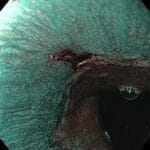
Narrow-Band Imaging (NBI) is a mode on modern endoscopes that enable clear visualization of pre-cancers and early cancers and therefore early detection.
Colorectal Functional and Neurogastroenterology
Do you have really bad constipation? or do you have fecal incontinence that keeps you at home? We understand such problems can be very embarrassing for the patients.
Anorectal Manometry
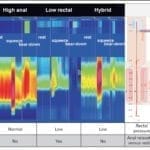
Anorectal Manometry and Balloon Expulsion Test (BET) are often used to diagnose conditions that cause painful or incomplete defecation or constipation.
Bowel Transit Study

Bowel transit studies involves swallowing markers that can be seen on X-Ray. This tests determine if your bowels are moving normally or slowly.
Biofeedback Therapy

Biofeedback therapy uses a small probe to teach patients how to relax their pelvic floor muscles and coordinate muscle movements for bowel opening. It is very effective.
Disorders of Brain-Gut Interaction (DGBI)
If you find yourself being told that all your tests including endoscopy are normal, your medications are not helping but your symptoms are persisting? You might have DGBI which is a diverse range of conditions that was previously unrecognized.
Esophageal Manometry

Esophageal Manometry involves passing a small tube with sensors through your nose into your stomach to test functions of your esophagus. It is increasingly helpful for Scleroderma patients.
pH Impedance Study
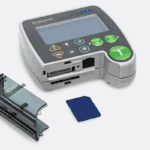
pH study involves a small flexible tube inserted through your nose to detect air and liquid movement in your stomach and esophagus usually to determine acid reflux.
Mucosal Integrity Testing
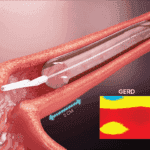
Mucosal integrity testing is performed during Endoscopy to diagnose acid reflux such as GERD. This test is helpful to determine if you need to be on medications.
Lactulose Breath Test

Lactulose Breath Test is useful to diagnose Small Intestinal Bacterial Overgrowth (SIBO) which often causes bloating and abdominal cramps.
Feeding and Nutrition
Eating and drinking is one of the fundamental functions required to sustain life. Cancers can block food passage and cause uncomfortable vomiting and stomach pains. Ensuring restoration continuous nutrition is important to achieve best surgical outcome for patient.
NG Tube

Nasogastric Tube (NG Tube) is the choice of feeding in strokes and cancers of the esophagus and stomach while awaiting definitive treatment.
NJ Tube
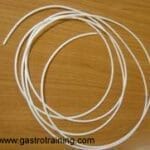
Naso-Jejunal Tube (NJ Tube) is longer and preferred for cancers beyond the stomach. We can feed patients and give medications through NG and NJ tube.
PEG Tube

Percutaneous Endoscopic Gastrostomy (PEG) tube are inserted through the skin into stomach usually in patients with large strokes or neurological conditions.
Kangaroo Feeding

Kangaroo feeding uses a pump to either continuously or intermittently feed patients in a controlled manner. It is often used in ICU or patients with pancreatitis.
TPN
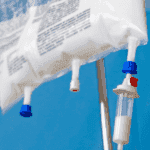
Total Parenteral Nutrition (TPN) is liquid nutrition and electrolytes that is precisely calculated your body requirements and injected into your veins.
CDED

Crohn’s Disease Exclusion Diet (CDED) is a technique used to successfully induce remission in Crohn’s Disease without using steroids.
Functional Gastrointestinal Disorders (FGID)
Treatment of FGID requires patient search for the right treatment suited to patient needs.
Dietary and Lifestyle

Diet and Exercise changes can give patients significant relief in management of their debilitating symptoms. Consider the intensive low FODMAP diet or the easier Mediterranean diet.
Pharmacological

You will notice that some of these medications were used to treat anxiety, depression or psychiatric problems. We find same medication at much lower doses help our patients.
CBT

Cognitive Behavioral Therapy (CBT) is aimed at identifying and challenging unhelpful thoughts in order to modify behavior. We find it very effective in IBS.
Gut Infections
There many viruses and bacteria that colonize our gut. However some of these bacterias such as Clostyridium Diffcile and Tuberculosis (TB) are pathogenic and can cause significant damages to the bowel wall.
Fecal Microbiota Transplantation (FMT)
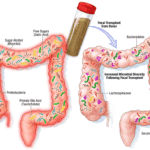
Fecal Microbiota Transplantation uses Colonoscopy to deliver healthy bacterias idirectly into your colon in conditions such as recurrent C.Difficile infection.
Tuberculosis
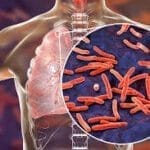
Tuberculosis very commonly hides in the stomach and colon if undetectable in the lungs. We can diagnose TB via colonoscopy and biopsy.
Imaging of Liver and Gastrointestinal Tract
Leverage our variety of equipment to visualize areas cannot be seen using the endoscope.
Ultrasound

Ultrasound is a quick and cheap tool to detect infections and cancers in the Abdomen and Liver especially in patient with Kidney problems.
CT Scan
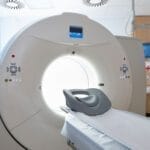
CT scan with IV Contrast is an excellent tool for detecting cancers of stomach, colon, liver and pancreas. We use different protocols depending on the purpose of the test.
MRCP

Magnetic Resonance Cholangio-Pancreatography (MRCP) is an MRI without Contrast for detecting diseases of Biliary Tree and Pancreas.
MRI Liver + Primovist
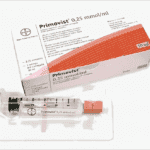
Magnetic Resonance Imaging (MRI) in combination with Primovist gives excellent resolution in detection and characterization of small or complex liver tumors.
PET-CT + DOTATATE

PET-CT is an imaging machine with DOTATATE tracer that can localize Neuroendocrine Tumors (NET) and provide information regarding disease activity.
Fibroscan
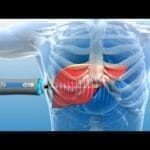
Fibroscan or Liver Elastography uses a special Ultrasound probe to detect and quantify liver stiffness and fibrosis (scarring) in Fatty Liver.
Liver Biopsy
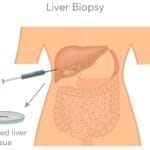
Liver Biopsy is often the final step in an extensive series of tests for the liver. Ultrasound is used to guide the needle insertion into the liver for samples.
Interventional Radiology
Interventional Radiology (IR) involves a Radiologist passing a wire into your blood vessels under X-ray guidance to deliver targeted therapy. The advantage of IR technique is it is often quick and effective. The disadvantage of IR technique is often the availability and contrast usage in patients with kidney problems.
Embolization

Embolization involves passing a wire into your blood vessels in order to stop bleeding in the stomach or colon often in combination with Endoscopy or CT scan.
PEI
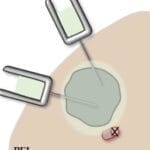
Percutaneous Ethanol Injection (PEI) is an option for small early Liver Cancer at an accessible location. It is often a quick procedure.
TACE
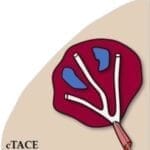
Conventional Transarterial Chemoembolization (cTACE) involves injection Lipoidol to block the blood supply to the tumor.
TIPSS
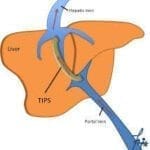
Transjugular Intrahepatic Porto Systemic Shunting (TIPSS) involves a stent in the blood vessels of the liver. This procedure is helpful for patients with swelling of the stomach or bleeding.
DEB-TACE

Drug Eluting Beads (DEB) Transarterial Chemoembolization (TACE) involves injection of Yttrium-90 beads into the blood vessels beside the Liver Cancer.
Percutaneous Drainage

Percutaneous Drainage is performed for those who have either liquid or pus collection in the lungs, liver or abdomen using a small needle and a catheter.
Liver Diseases
Liver Cirrhosis is the final stage of liver damage after years of injury to the liver. We can detect and treat complications of liver cirrhosis such water accumulation in stomach (ascites), swelling of blood vessels (esophageal and fundal varices), kidney injury (hepatorenal syndrome) and hepatic encephalopathy.
Hepatitis
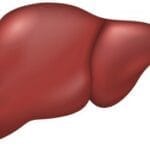
Modern medicine can significantly reduce progression of Hepatitis B to Liver Cirrhosis and Cancer whereas Hepatitis C can be cured. You can break the chain of transmission.
Liver Cirrhosis

We provide full services of Peritoneal Tapping (Drainage), Albumin Replacement, Medication Therapy, Albumin Transfusion and prophylaxis against infection.
Portal Hypertension

We got you covered as we provide medications, endoscopy treatment such Band Ligation and Histoacryl Glue Injection for prevention or in Variceal Bleeding emergency.
Laboratory
We have an extensive range of specialized Laboratory testing to complement Imaging and Endoscopy in order to guide diagnosis and treatment. .
Blood Tests
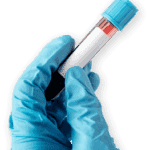
We offer specialized blood tests for detection of Hepatitis A, B, C, D and E, autoimmune liver conditions, cancers and hereditary disorders.
Fecal Calprotectin

Fecal Calprotectin is useful for the diagnosis and monitoring of treatment response in Crohn’s Disease and Ulcerative Colitis. It also useful as screening test.
Fecal Elastase
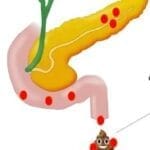
Fecal Elastase is used to estimate the function of the Pancreas in Chronic Pancreatitis which often gives Chronic Pain. Treatment with Creon can significantly improve symptoms.
H.Pylori
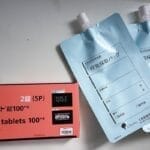
We can do Blood Test or Urea Breath Test (UBT) in order to diagnose and treat H.Pylori infection. Untreated H.Pylori can lead to stomach cancer.
Newer Therapeutics
The treatment of Crohn’s Disease and Ulcerative Colitis are undergoing a massive paradigm shift with the advent of newer therapeutic agents. However are they better than the currently established therapies?
Biologics
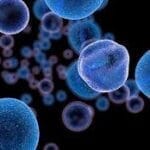
Biologics in the context of Gastroenterology refers to monoclonal antibodies. Basically they are treatments that target specific cells in the body.
JAK Inhibitors
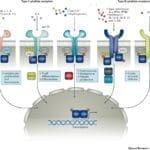
Janus Kinase (JAK) Inhibitors are a group of drugs that block the production of chemicals in the body responsible inflammation and autoimmune conditions.
S1P Inhibitors
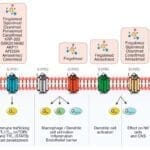
Sphingosine-1-phosphate (S1P) receptor modulators such as Ozanimod are a class of drugs that prevent the release of immune cells that are responsible for inflammation and autoimmune conditions..
Nuclear Medicine
Nuclear Medicine testing involves drawing your blood and marking it with radioactive tracers that can be detected by the scanners.
Red Cell Scan
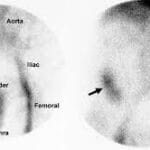
Red Cell Scan involves putting tracers to your red blood cell in order to detect bleeding in your stomach or colon when it cannot be detected by conventional methods.
White Cell Scan
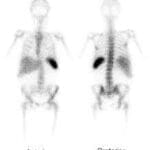
White Cell Scan involves putting tracers to your white blood cell in order to detect infection or inflammation in your body if it cannot be detected by conventional methods.
HIDA Scan

HIDA Scan involves putting tracers to your bile in order to detect problems with your gallbladder and biliary tree. It is useful to determine if gallbladder removal is really needed when diagnosis is questioned.
Meckel’s Scan
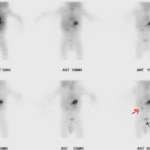
Meckel’s Scan involves putting tracers in your blood cells in order to detect stomach tissue in your bowel wall. While mostly common in children, it occasionally presents in adults. .
Obesity
Obesity is a multifactorial problem which requires all aspects of it to be simultaneously addressed for it to be successful. Furthermore upon achieving weight loss, a patient journey continues in order to maintain the weight lost.
Medications
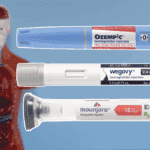
GLP 1 Receptor Agonists are injectable medications that are receiving a lot of attention in the social media. However these medications require patient commitment.
Intragastric Balloons
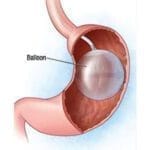
Intragastric Balloons as seen in the image is a balloon occupying your stomach and hence making you feel full. It is a quick and safe procedure that lasts up to 1 year.
Bariatric Surgery
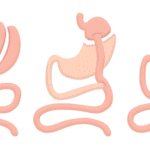
Bariatric Surgery has the ability to reverse diabetes and induce the most weight loss. It also carries the most risks and require expert surgeons for best outcome. It lasts 3-5 years.
ESG

Endoscopic Sleeve Gastroplasty (ESG) is incisionless Bariatric Surgery with minimal risks. It can last more than 1 year as the sutures can come out.
Oncology
Oncology is the field of cancers previously confined to chemotherapy and radiotherapy. However these days immunotherapy have really transformed Oncology treatment for patients.
Stenting

Cancers of the Esophagus, Stomach, Duodenum and Colon can block the passage of food and liquid making the patient very unwell. Stenting can quickly solve this.
Radiotherapy

While limited in scope in the field of Gastroenterology these days, it is still an excellent treatment for bleeding in cancers and or rectal tumors where surgeryand stoma might be undesirable to patients.
Chemotherapy
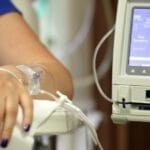
The role of Chemotherapy also has shifted to neo-adjuvant treatment to reduce tumor sizes and downstage cancer prior to surgery in order to achieve better outcome.
Immunotherapy
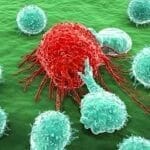
Immunotherapy has changed the landscape for the treatment of of Liver Cancers in modern times.
Pain Management
Conditions such as Irritable Bowel Syndrome, Pancreatitis and Cancers such as Cholangiocarcinoma and Pancreatic Cancers are extremely painful conditions that can be very debilitating to the patients. There are a variety of methods we can address these pain according to their source.
Pharmacotherapy

Even conventional pain relief medications have different routes such patches that provide continuous relief. Anti-spasmodics provide relief for IBS.
Celiac Plexus Block
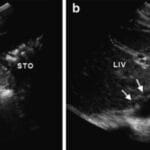
Celiac plexus block (CPB) involves injection of pain medications directly into the nerves under the guidance of of CT scan or EUSwhen painkillers do not provide adequate relief.
Celiac Plexus Neurolysis

Similar to block except Neurolysis involves destruction of the nerves usually using ethanol in order to provide an extended pain relief
Acupuncture

Acupuncture might work especially in conjunction with other treatment to reduce the amount of painkillers used after operation or in certain cancer.
Pregnancy
Liver diseases in Pregnancy can be a threat to both mother and fetus. Systematic assessment and timely management can ensure the best outcome for both mother and child.
Intrahepatic Cholestasis of Pregnancy

Intrahepatic Cholestasis in Pregnancy can cause fetal loss especially late in Pregnancy. This condition can be diagnosed, treated and risk to the fetus managed effectively.
Pre-Eclampsia / Eclampsia / HELLP

This insidious condition is increasingly being recognized as a spectrum of diseases. When criteria is not fulfilled, careful monitoring is required to prevent harm.
Acute Fatty Liver of Pregnancy

Early recognition of this condition saves the live of the mother as delivery of the fetus is the only treatment. This condition requires systematic assessment.
Surveillance for Early Cancer Detection
Very frequently during endoscopy we pick up diagnosis that if left alone without follow-up would eventually lead to cancer. Early detection of precancerous lesions, careful disease surveillance or eradication can prevent progression to cancer.
Barrett’s Esophagus

Barrett’s Esophagus commonly found in the Esophagus is a precancerous condition that can be prevented through eradication or careful surveillance.
Colorectal Cancer
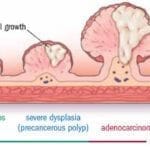
A small colonic enlarges over time and progresses to become cancer. Colonoscopy combined with NBI can detect and therefore remove polyps before they become cancer.
IBD

Inflammatory Bowel Diseases can progress to colon caner especially if the disease has always been active. Surveillance with Colonoscopy can detect precancerous lesions early and removed.
Gallbladder Polyps
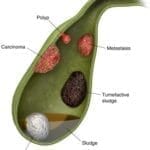
Gallbladder Polyps are a common finding in patients who uyndergo Ultrasound scans. However large polyps can progress to cancer and must be removed. .
Hepatocellular Carcinoma

Pateints with Fatty Liver, Hepatitis B and Hepatitis C if untreated can progress to Liver Cirrhosis and Liver Cancer. Regular Ultrasound asound candetect and result in early treatment.
Pancreatic Cyst
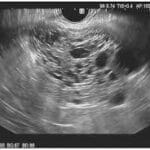
Pancreatic cysts are often incidental findings during CT scan. They can be either beinign or precancerous and therefore require follow-up to prevent progression into Cancer.
Stomach Ulcers
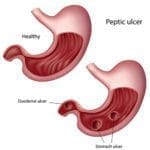
Stomach ulcers are never ever normal. It must always be followed-up until confirmed to be have healed as it might be harboring stomach cancer.
Surgery
Gastroenterologists work closely with our Surgical Colleagues in order to achieve good outcomes in our patients with Cancers and Inflammatory Bowel Disease (IBD) such as Crohn’s and Ulcerative Colitis.
Bowel Resection

Cancer surveillance after operation and treatment with biologics for IBD after bowel resection requires collaborative effort. Long term effects such as SIBO and diarrhea is common and treatable.
Reanastamosis

Inflammatory bowel diseases can present as emergencies requiring urgent life saving surgeries that leave patient with a stoma. Treatment must be optimized so that the stoma can be reversed promptly.
Transplant

Patient with Liver Transplant require extensive counselling and testing before and careful management of medications after liver transplant .